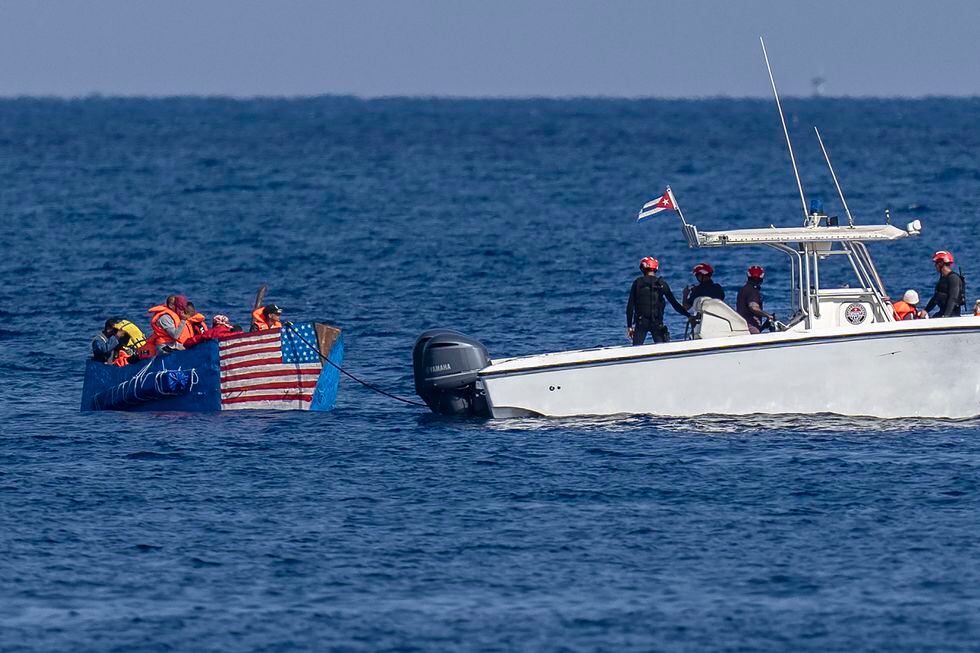20th November 2023
Cuba has urged the Biden Administration to comply with the two nation’s agreements that guarantee the regular, safe, and orderly migration of Cubans to the US.
Speaking to the media following a 14 November meeting in Havana with senior US officials on migratory issues, Carlos Fernández de Cossío, Cuba’s Vice Minister of Foreign Affairs, said that the US proportionally admits more irregular migrants from Cuba than from any other country, and that its policies towards Cuba acted as a “stimulus.”
“By accepting the majority of those who arrive,“ he said the US was failing to comply with bilateral agreements in their entirety.
Fernández de Cossío said that the inclusion of Cuba in the US’s list of state sponsors of terrorism and the socioeconomic effects of sanctions, acted as an important stimulus for irregular migration. It was important, he said, that bilateral migration agreements were complied with in their entirety and not selectively.
In his remarks to the media, De Cossío stressed that the creation by the US of legal pathways for Cubans to migrate, including family reunification and humanitarian parole programmes, meant that the problems will continue.
In Washington, he noted, “there is no political will” to change the immigration policy. “For the United States, the priority of destabilising Cuba continues to take precedence over stopping human flows and guaranteeing safe, regular, orderly and legal migration,” he observed.
More generally, De Cossío described the meeting as a “useful exercise,” but added that in bilateral migration matters “there is much to do.”
Cuba’s Ministry of Foreign Affairs (MINREX) in a statement noted the negative impact that the embargo and its tightening since 2019 have had on the Cuban population, observing also that the preferential treatment received by Cubans who enter US territory irregularly under the Cuban Adjustment Act, which grants permanent residence to Cubans after a year, encouraged irregular migration.
Minrex added that during the meeting Cuban officials expressed Havana’s concern about the granting of political asylum by the US to those who hijacked Cuban aircraft, observing that it incentivised similar acts with dangerous consequences for the national security of both countries. It reiterated Cuba’s willingness to comply with established commitments
In a minimal statement released after the meeting, the US State Department said that “the regular semi-annual meeting to discuss the implementation of the US-Cuba Migration Agreements, saw the US delegation raise important issues for cooperation on migration, as well as the obstacles that hinder the achievement of the objectives of the Agreements.”
It added that the talks in Havana underscored Washington’s desire to maintain constructive engagement “that advances the interests of the US” and is consistent with “our interest in fostering family reunification and promoting greater respect for human rights and fundamental freedoms in Cuba.” The State Department’s Deputy Assistant Secretary for Western Hemisphere Affairs, Eric Jacobstein, led the US interagency delegation.
Last calendar year more than 313,000 Cubans arrived irregularly to the United States mainly through its southern border. According to the Department of Customs and Border Protection (CBP) 200,287 Cubans arrived in the US in fiscal year 2023, which ended in September. In October this year alone, a record monthly 18,083 Cuban migrants arrived mostly through Mexican border points according to the CBP. For the ten months up to the end of October this year, 57,243 Cubans obtained legal entry to the US under the Biden Administration’s humanitarian parole programme. So far the US has returned 5,056 irregular migrants mostly arriving by sea.
As Cuba Briefing has reported previously, high levels of migration are beginning to affect Cuba’s economic recovery. The island’s official national and provincial media now regularly report that shortages of food and medicines, power outages, soaring inflation, low state wages, dollarisation, and the need for a source of foreign currency to survive, are together resulting in many Cubans seeing migrating to the US as an attractive option, especially for those who are young and well educated. The reported effect of US policy now appears to be a growing island-wide skills shortage in medicine, teaching, heavy industry, manufacturing, and the professions, all of which need to function effectively if the island is to experience economic recovery in the near future.
The Caribbean Council is able to provide further detail about all of the stories in Cuba Briefing. If you would like a more detailed insight into any of the content of today’s issue, please get in touch.
Photo: EL Pais






